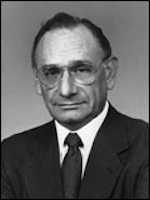Last month's tragic deaths of seven firefighters and two flight crewmen in a California helicopter crash should call new attention to the lack of benefits for the survivors of those who risk their lives fighting wildland fires. They are acclaimed as heroes when they die in the line of duty, but very little is done to provide financial security for the families they leave behind. The problem: many are hired by private companies as "contract workers" and are not recognized as government employees or public safety officers. Technically, they work for the contractor who hired them and are not eligible for the benefits that protect the survivors of firefighters and air crews who work directly for government agencies.
It is an obvious injustice because the contract crews work side-by-side, do the same jobs and take the same risks as firefighters and air crews who are directly employed by state and federal agencies or are members of local fire departments. Over the years, attempts to correct this inequity have been thwarted by government fears that paying a death benefit for privately hired crews would set a precedent for other contract employees to demand similar coverage.
The difference, of course, is that others are not required to risk their lives while doing their jobs. Since 1990, a reported 129 wildland firefighters (including helicopter and tanker crews) have been killed in the line of duty. Only 18 survivor families were approved for claims filed under the Public Safety Officers Benefit (PSOB). Most of the others received little or nothing from the contractors or the government agencies that hire these private companies for the annual fire season. Because the work is so dangerous, the cost of insurance for contract firefighters and pilots is unaffordable and often inadequate.
The California helicopter crash is believed to be the nation's worst wildland aircraft accident. The helicopter went down in rugged mountain terrain northwest of Redding with 13 people on board. The nine who were killed included seven contract firefighters, a contract pilot and a U.S. Forest Service flight inspector. Three other firefighters and the co-pilot were injured. The casualty list illustrates how unfair the rules are when it comes to benefits for the victims' families. As a federal employee, the flight inspector's survivors are eligible for the PSOB death payment, currently $303,000. Under California law, the pilot's family can receive a payment from the state that is equal to the federal PSOB award. But it does not cover the survivors of contract firefighters, though the state will provide lifetime medical benefits for the immediate family of any firefighter killed while fighting a fire in California.
"This Redding crash could change history," a veteran wildland fire officer told us. "The public will see how unfair the system is...I think there will be a day when the families of ground and air crews will get the PSOB payment regardless of who hired them." Others are not so sure that anything will change. They point out that California's benefits -- which fall far short of what is needed -- have been the most generous of the western states where contract firefighters are deployed in vast numbers every year.
Legislation to correct part of the problem has been pending in Congress for five years. It's known as the Aerial Firefighter Relief Act and was originally proposed by Rep. Barbara Cubin (R-Wyoming). Briefly, it would make the air crews eligible for PSOB payments, retroactive to 1976, when PSOB was started. A non-retroactive Senate version has been proposed by Senators Dianne Feinstein (C-California) and Michael Enzi (R-Wyoming). As this is written, it's unclear whether the legislation would also cover contract firefighters who are killed while fighting wildland fires on the ground and who account for most of the wildland fatalities. Unfortunately, the House bill has languished in committees and hasn't had a hearing since 2004; only a dozen or so members have signed on as co-sponsors.
The courts also have been largely unresponsive to the plight of wildland firefighters and air crews, usually ruling against them in cases that have attempted to force contractors and government agencies to assume some responsibility for the welfare of the people they hire -- directly or indirectly. Christina Goff, the widow of a California pilot whose plane crashed, took her case all the way to the U.S. Supreme Court, which denied a hearing on grounds that there were "more important issues that would affect more people."
This year has been extremely tough in the western states, especially California, with more big fires coming earlier than normal. Traditionally, the worst of the wildland fire season starts this month and peaks in October. Thousands of contract firefighters will go into action and there's something drastically wrong with a system that doesn't provide adequate protection for their families.
HAL BRUNO, a Firehouse® contributing editor, retired as political director for ABC News in Washington and served almost 40 years as a volunteer firefighter. He is a director of the Chevy Chase, MD, Fire Department and recently retired as chairman of the National Fallen Firefighters Foundation.

Hal Bruno | Magazine Staff
Hal Bruno was a Firehouse contributing editor and retired as political director for ABC News in Washington. He served almost 40 years as a volunteer firefighter. He wasa director of the Chevy Chase, MD, Fire Department and was chairman of the National Fallen Firefighters Foundation.





